Contents
Natural disasters like wildfires and extreme weather injured or killed over 2600 Americans in 2015, and caused 4.8 billion dollars of damage (1) . What separates the survivors from the not-so-fortunate? The answer doesn’t come down to any one factor. It takes a set of survival skills during disaster conditions to get through the crisis. These are techniques that most Americans have lost touch with. The good news is, you still have time to learn what you need to know. It may even become a fun family activity as you and your loved ones test your newfound knowledge in the great outdoors.
That’s why I’ve come up with this list. It covers both basic and not-so-basic skills that fit together like a survival swiss-army knife, turning you into an expert who can handle a wide variety of disasters. Hopefully you’ll never have to exercise these survival skills. However, if the worst hits, you’ll know how to keep your family safe, secure valuable resources, and get to refuge as soon as possible.
10 Must-Have Disaster Survival Skills
1. Keep an Eye on the Unfolding Disaster With a HAM Radio
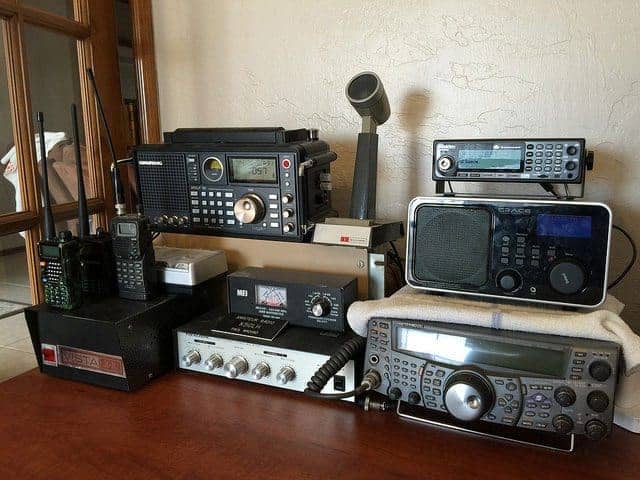
If communication lines go down, you can say goodbye to landline phones, GPS, and cell signals. What’s left? Traditional radios.
HAM radios give you a window into the outside world. With one, you’ll catch foul-weather warnings, get in touch with emergency responders, and know what’s going on outside of your line of sight. You may even be able to trade knowledge with other surviving families in the area. However, these radios aren’t as simple to use as pressing a button.
Knowing how to operate and maintain a HAM radio is a vital survival skill. You can start with the Natural Association for Amateur Radio (2). This organization offers a wealth of resources to learn about the radio. Don’t miss their handy, free to download Emergency Services Manual (3).
2. Basic Medical Training to Keep Your Family in Good Health
Every able-bodied person should know how to do CPR and basic first aid. The American Red Cross offers workshops around the country (4). Classes vary from a quick tutorial on the fundamentals of CPR to several hours or days spent detailing first aid techniques. All levels of workshop will teach you the basics on how to keep people alive until emergency responders come. Also, having a basic first aid kit can be the difference between life and death.
What if you’re in a situation where help isn’t coming? In that case, you’ll need a more in-depth understanding of how the body works and which medical interventions to use. Emergency Medical Technician classes endorsed by the National Association of Emergency Medical Technicians (5) can fill that gap.
3. Rediscover Your Caveman Roots by Creating Fire
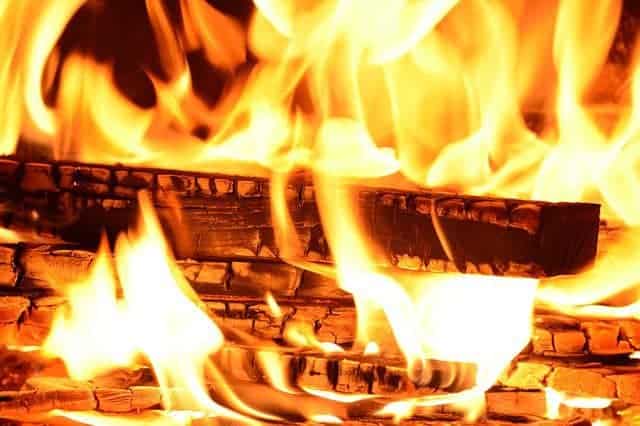
It may look easy on TV, but creating fire is a highly technical skill. Modern tools like matches or a flint striker can help but your environment may make it a real challenge to get the fire going. Even survival expert Bear Grylls struggles at times (6)
Your best bet is to pick two methods of fire making, for example with a flint striker and with a lighter, and practice fire making until it’s second nature. A tactical kit can help tremendously, it has everything you need to start fires consistently. Find our favorite kit here. Remember to work in a variety of conditions or you’ll end up like Bear Grylls, minus the safety net of a camera crew.
While you’re at it, did you know that there are different kinds of campfires? The way they’re shaped can optimize the fire for cooking, heating a tent, signaling to emergency responders, and more. All of this information is covered in this guide: (7).
4. Learn to Throw Together an Emergency Shelter With the Resources at Hand
If your home is no longer standing or your family is forced to flee, you’ll need someplace to rest. These shelters range from a tent made out of tarps to a water and wind-resistant primitive cabin.
Anything is better than no protection from the elements.
For the kids, the local chapter of the Boy Scouts (8) may teach shelter-building. For adults, you can reach out to the local survivalist community and get valuable lessons from these enthusiasts. There’s also a wealth of online resources on this subject like this article from Field and Stream magazine (9).
Further Reading: Safety in the Wild: The Ultimate Survival Shelter Guide
5. Familiarize Yourself With the Land
Whether you live in the mountains, forest, or desert, your environment has a unique set of dangers and resources. You decide: do you want to work with the land or struggle against it?
National Parks (10) and many State Parks offer family-friendly outdoor skills workshops, day hikes, and more. The rangers there can share years of experience with what park visitors in emergency situations have done right and what they got wrong. While you’re at it, the U.S. Army Survival Manual (11) covers all aspects of surviving in every kind of environment. It explains techniques clearly enough that the whole family can learn.
6. Hone Your Hunting and Fishing Skills and Your Family Will Never Go Hungry
‘Living off the land’ isn’t as easy as picking fruits and berries. In a disaster, you’re looking at days, weeks, or even longer stretches of hard labor. You have to give your body the fuel it needs for this challenge. That means incorporating plenty of protein and fats into the diet.
Those game animals, birds, and fish look tasty, but they’ve evolved to escape hunters. You’ll need training to be able to reliably catch them. If you didn’t grow up learning these skills, it’s time to start. You can join one of many National hunting and fishing associations (12) like this one associated with the NRA (13). Don’t forget to check your local shooting range’s bulletin board to see if anyone’s offering lessons. However, even in times of disaster you need to follow state law. Consult Hunter Ed (14) for the hunting guides for every state.
Further Reading: How To Get Your Hunting License – For Each US State | Archery Street
7. Defend Your Family With a Firearm and Preach Gun Safety

Guns are a disaster no-brainer. Men have defended their families with firearms since before the Revolutionary War. However, in inexperienced hands, a gun can be just as dangerous as anything you’re facing. The NRA (15) or your local shooting range can connect you with gun safety and usage classes.
According to the Centers for Disease Control, in 2013 there were 505 deaths from the accidental discharge of firearms (16). Tragically, this figure includes a number of children. It serves as a grim reminder of the duty you have to handle and store your firearm responsibly in secure places like a locked gun chest. You can also make sure your whole family, young and old, knows basic gun safety (17).
Further Reading: The 4 Universal Gun Safety Rules, Plus 13 More You Should Follow | Gun Pros
8. Practice Water Treatment and Food Preservation Methods
Diarrhea and food poisoning can knock your whole family out for days. In severe cases, these conditions can even kill. Avoid that by learning food and water safety skills.
Creating potable water is as simple as boiling it for one minute, but what if you can’t build a fire? Then you’ll need at least one backup method. The chart on this page (18) and this guide from the CDC (19) compare these purification strategies.
Food preservation can be a little more complicated. Smoking meats (20) and burying carcasses to let the earth naturally cool them are time-tested methods You can also experiment with drying or canning produce. These skills can be learned from the National Center for Home Food Preservation (21). Canning is a bit of an investment to get into, but you may score cheaper supplies from Craigslist (22).
9. Become Your Own Mechanic and Handyman
A Jeep in good working is invaluable when you have to get out of a situation fast. The first step is to stay alert to warning signs of car trouble like the ones on this list from the Federal Trade Commission (23). Next, you need to fix the problem. Community education centers offer classes in this. You can also check out online courses like Autoshop 101 (24) or Basic Auto Repair and Maintenance for Dummies (25).
Your car isn’t the only thing that could break down. What about your HAM radio? Your mother’s wheelchair? Part of the roof? You’ll increase your family’s security tenfold by learning how to fix these. ACME How to Guides are a great resource (26). Hardware stores like Lowe’s and Home Depot (27) also offer workshops.
10. Learn to Garden and Ensure a Balanced and Varied Diet After a Disaster

In a long term survival situation, hunting won’t be enough. Add a garden and you’re adding all the dietary nutrients your family needs. However, gardening requires planning and a fair amount of know-how. You need to choose crops adapted to your environment, plant them at the right time, protect the developing crops from pests, and harvest them. To do this, you’ll have to have a stockpile of tools, seeds, fertile land, and a steady supply of water.
Plant and Garden Supply centers often offer classes, such as these from Swanson’s Nursery: (28). Online, you can look up your USDA Hardiness Zone through their online finder (29) and take a look at Gardening for Dummies (30).
Final Thoughts
Everyone prepares for a disaster in a different way. Depending on where they live, they may face different natural hazards, political instability, and more. I hope this list offers valuable resources for you, but in the end, it’s a starting point. You’re the best judge of what you’ll need to know to carry your family through a crisis.
Have you enjoyed this list? Do you have any questions? Share what you think in the comments section, and share the article with your friends if you liked it.

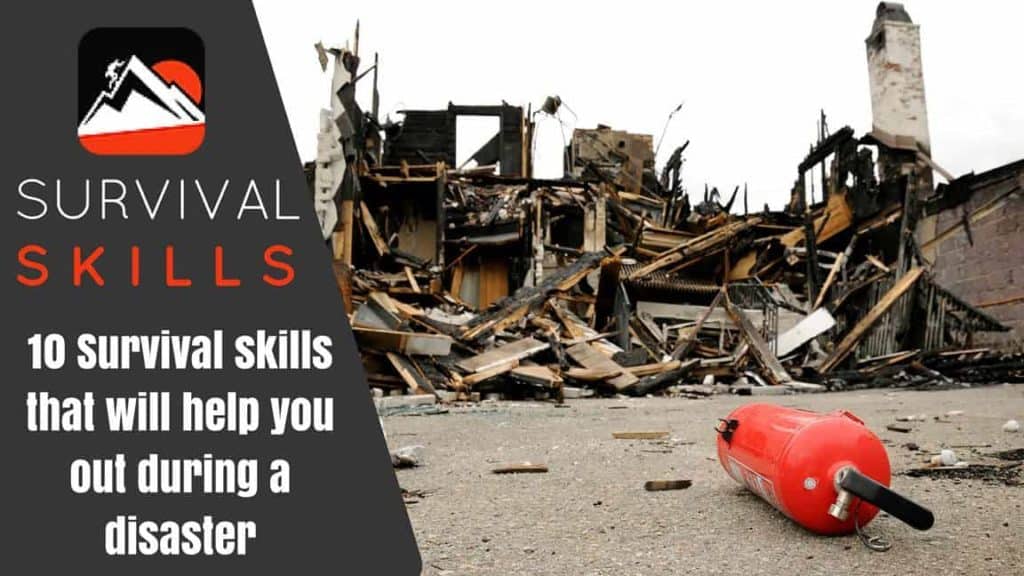
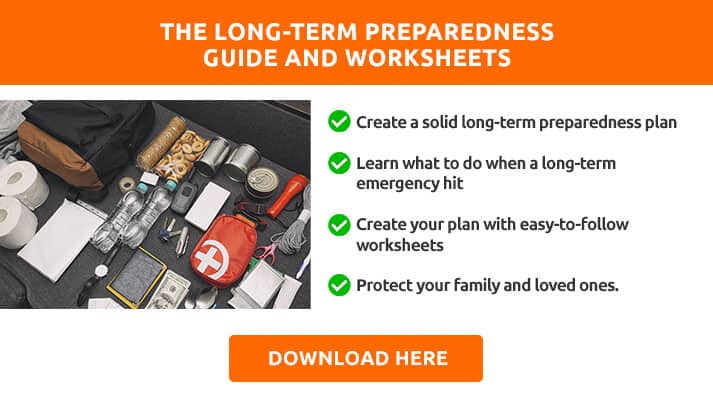
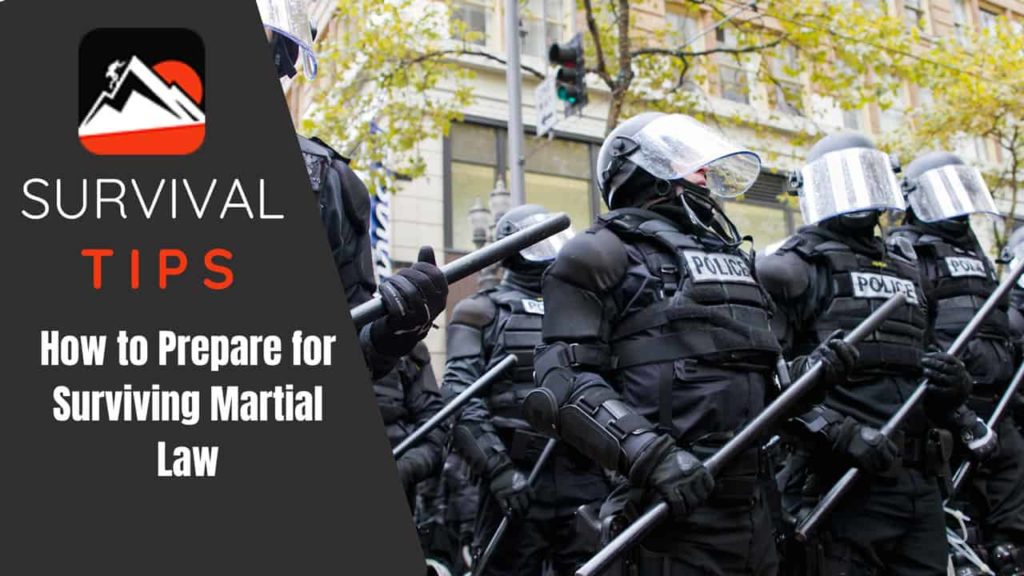
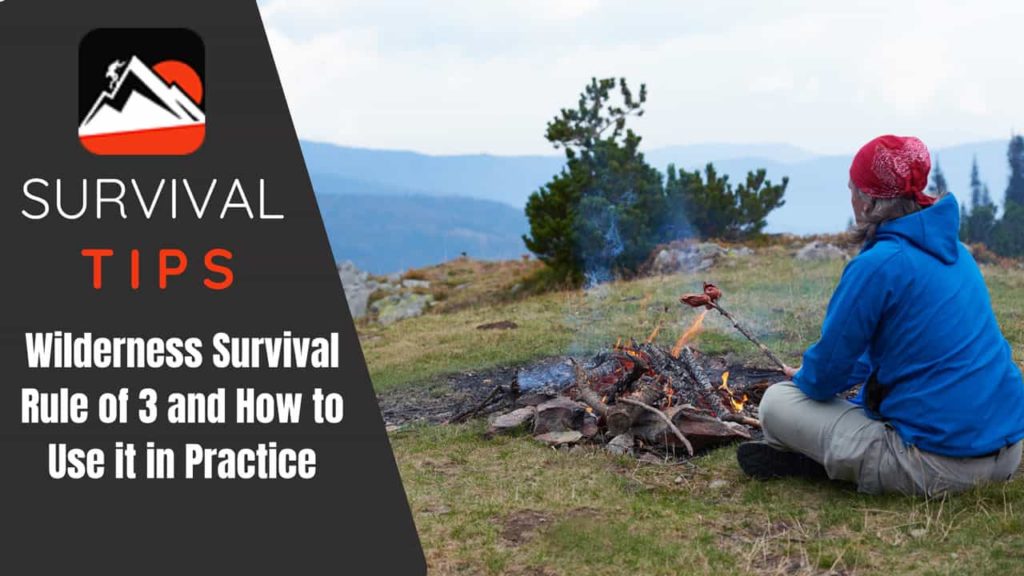
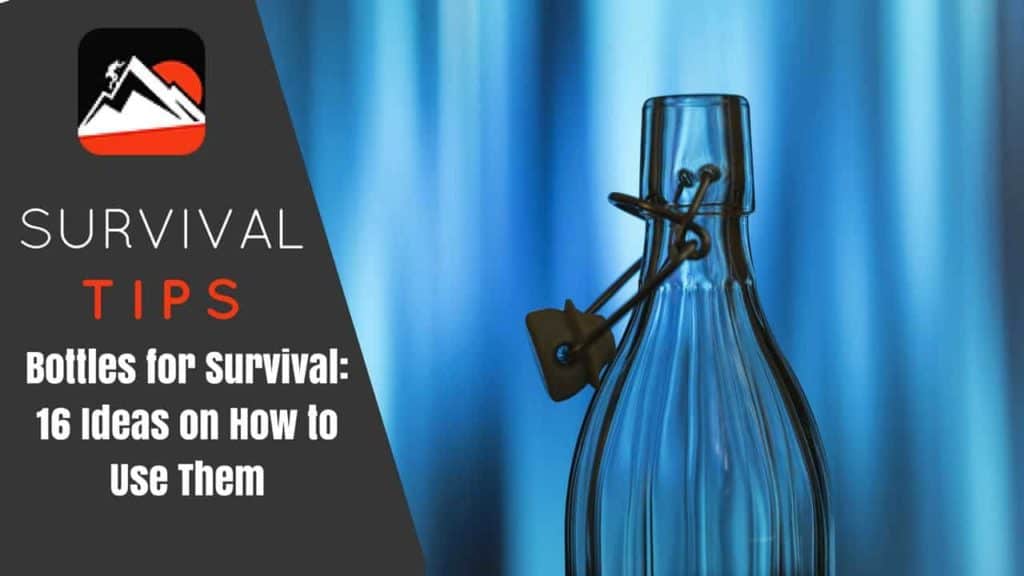
Familiarizing your self with the land and surroundings is most important according to me.. If not you can end up facing a lot worse then you would expect..